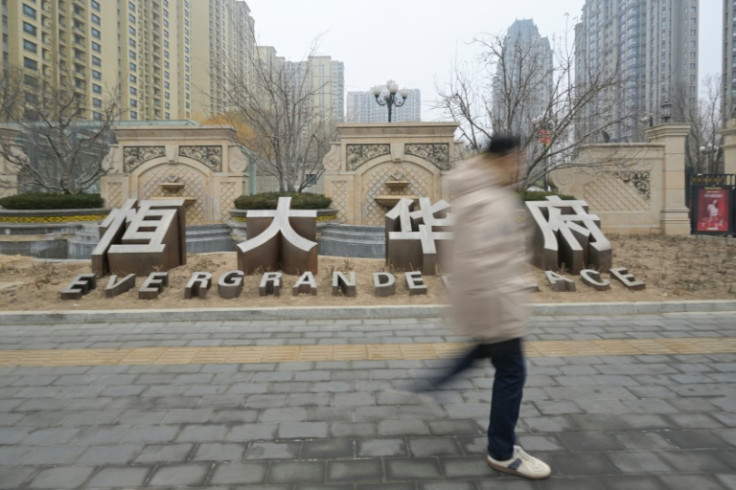Chinese Property Giant Evergrande Fined $576 Mn For 'Fraud'

China's deeply indebted property giant Evergrande has been fined $576 million for fraudulent business practices, Beijing's top financial regulator said Friday.
Evergrande was once China's biggest real estate firm, a powerhouse in a sector that helped propel the country's rapid economic growth during recent decades.
But its spiralling debt became emblematic of a prolonged crisis in China's real estate sector.
Struggling to repay creditors for years, it defaulted in 2021.
China's Securities Regulatory Commission (CSRC) said Friday that, between 2019 and 2020, the firm "falsely increased its revenue and profit by prematurely recognising revenue, resulting in the fraudulent issuance of bonds publicly offered on the exchange market".
It said the firm had "failed to disclose regular reports as scheduled, failed to disclose major litigation and arbitration as required and failed to disclose failure to settle debts due as required".
The CSRC said it had also imposed a maximum fine of $6.5 million on Evergrande founder Xu Jiayin, also known as Hui Ka Yan, banning him from the securities market for life.
Turmoil in China's property sector has put increasing pressure on Beijing to provide help as the crisis weighs down growth in the world's second-largest economy.
Beijing took action this month, unveiling a slew of measures to support the housing market -- including cutting the minimum down payment rate on mortgages for first-time home purchasers from 20 percent to 15 percent.
Plans were also announced for local governments to acquire unused property in a bid to ease the financial burden for struggling firms.
The new measures, some of the strongest yet taken by Beijing to tackle the crisis, have increased optimism that China's economy might return to full health in the near future.
The International Monetary Fund said this week that it has raised its growth forecast for China this year from 4.6 percent to five percent.
It cited Beijing's recent housing market support proposals among the reasons for its decision but warned that current industrial policy risks a "misallocation" of resources that could damage trade.
Evergrande's fate has been mirrored by several other Chinese real estate firms, including Country Garden and Vanke, that have crumpled under massive debts.
A court in the semi-autonomous city of Hong Kong issued a winding-up order for Evergrande in January, ruling that the company had failed to come up with a debt repayment plan that suited its creditors.
© Copyright AFP 2025. All rights reserved.





















